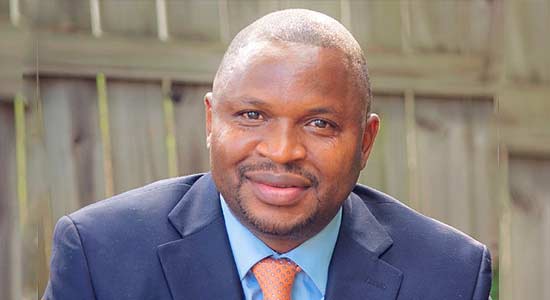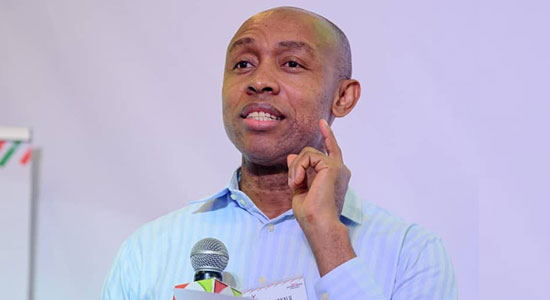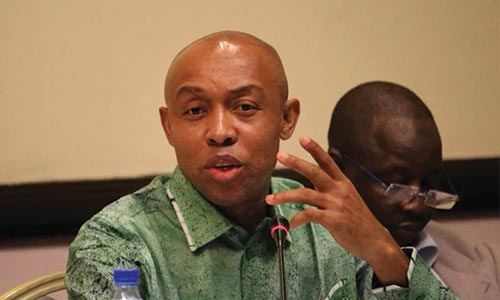Tinubu Wants Even Broke Universities To Fund Him

By Farooq Kperogi
President Bola Ahmed Tinubu is really having a ball—at the expense of the rest of Nigeria. He has become so comfortable in his presidential self-indulgence that he now wants to wring water from stones and deposit it into an ocean. Our stone-broke universities are the stones. The presidency is the ocean to which Tinubu wants to pour the water he wants to extract from stones.
It wasn’t enough that he signed a N2.176 trillion Supplementary Appropriation Act on Wednesday in Abuja mostly to fund decadent presidential pleasures, such as $38 million for the presidential air fleet,$6.1 million for a presidential yacht, and even more millions of dollars for presidential “repairs,” presidential feeding, foreign SUVs for the First Lady’s office and for legislators, etc.
Now, he wants struggling, cash-strapped federal universities that are barely surviving to turn over 40 percent of all their internally generated revenue to the federal coffers to fund more presidential sybaritism and elite indulgence. I didn’t believe it when someone first called my attention to it.
The LEADERSHIP newspaper reported this week that the Accountant-General of the Federation by the name of Mrs Oluwatoyin Madein sent a memo to all federal universities titled “Implementation of 40% Automatic Deduction from Internally Generated Revenue of Partially Funded Federal Government Institutions.”
Signed on her behalf by Felix Ore-ofe Ogundairo, the director of Revenue & Investment in the office of the Accountant-General of the Federation, the memo said, “I am directed to inform you that the Honourable Minister of Finance and Coordinating Minister of the Economy (HMF&CME) has approved the implementation of a 40% auto deduction from the Gross Internally Generated Revenue (IGR) of all Partially Funded Federal Government Institutions in line with the Provision of Section 62 of Finance Act, 2020 with effect from November, 2023.
“Agencies/parastatals to not more than 50% of their gross IGR and the remittance of 100% (hundred percent) of the remaining 50% (fifty percent) to the Sub-recurrent Account. While all statutory revenue lines like Tender Fees, Contractor’s Registration Fees, Disposal of Fixed Assets, Rent on Quarters, etc shall be remitted 100% (hundred percent) to the Sub-recurrent Account.
“Consequently, all partially funded Agencies/Parastatals must align their budget requirements and ensure total compliance with the provision of Section 62 of Finance Act, 2020 and Finance Circular, 2021.”
This makes absolutely no sense at all. I am not talking of the blindingly poor grammar of the memo. The memo concedes that federal universities are merely “partially funded” by the federal government. That’s an acknowledgement of their financial precarity since they are supposed to be fully funded by the federal government, which established them.
In order to survive and live up to the demands of their mandate in spite of progressively vanishing support from the federal government that set them up, many universities devised creative and not so creative strategies to generate funds to stay afloat, which aren’t even sufficient. Now a government that has beaten every known record for eyewatering presidential profligacy wants to share in whatever little money financially distressed universities were able to raise to keep them from going under.
This is a wantonly cruel suffocation of federal universities that are barely hanging on! It betrays not just a profound poverty of imagination but a studied design to snuff out the last evidence of life in our universities. Since children of the elite no longer attend public universities in Nigeria, it’s easy to see why the government wants to kill them by stealth.
It’s a continuation of the conservative, right-wing, anti-people, neoliberal orthodoxy that is obviously the governing philosophy of the Tinubu administration. It’s probably also a pre-emptive move against legitimate demands for the funding of federal universities since the administration has said it has now saved trillions of naira from the removal of petroleum subsidies.
The initial argument was that money saved from the removal of petrol subsidies would be invested in education and infrastructure. That has turned out, at least so far, to be a big fat lie, as some of us had predicted. The money is instead being used to pay for the hedonic thrills and delights of people in power while the majority of the population sinks irrecoverably into the abyss of misery and deprivation.
But someone needs to tell honchos of the Tinubu administration that universities are not money-making enterprises. They are social services. Social services are an investment in the people, not revenue-generating ventures to fund the government. It’s sad that this needs to be pointed out.
Every single country on earth that transitioned from backwardness and stagnancy to success and progress has had to invest enormously in its universities. For example, Singapore’s transition from a Third World to a First World was enabled by its investments in its universities.
Singapore has now become a hub for education in Asia, and is known for its world-class faculty, cutting-edge research facilities, and strong emphasis on innovation. It didn’t happen overnight or by mere wishes. It happened because the government of Singapore has consistently invested in its universities.
South African universities are world-class and drive the country’s development because the central government there has committed massive resources to the higher education sector. Public universities receive substantial funding from the government, which is responsiblefor their high academic reputation,significant research output, and impressive contribution to national growth.
India, the world’s most populous country, with its large and diverse higher education system, has several well-funded public universities that are the drivers of the country’s match to greatness. Institutions like the Indian Institutes of Technology (IITs) and the Indian Institutes of Management (IIMs) receive substantial government support, which enables them to excel in technology, management, and research.
China has the second largest economy in the world after the United States. One of the secrets for its transition from dingy deprivation a few decades ago to gleaming prosperity now is the significant increase it made over time in its investment in its higher education sector. Top public universities like Tsinghua University and Peking University receive substantial government funding, which arms them with the arsenal to compete globally in terms of research output and academic excellence.
It speaks to the lack of foresight and self-interestedness of the ruling elites in Nigeria that instead of investing in our universities with an eye to the future, they want to squeeze money out of them—and with it the last vestige of life in them.
This is governance by banditry. How do you ask institutions you should fund but that you have starved of funds for decades to turn aroundto fund you? Where in the world does that happen?
The government is, in other words, asking federal universities to self-annihilate, to self-immolate, in order to feed an already overfed and overpampered federal government whose only reason for existence seems to be to indulge in hedonistic frivolities amid widening existential torment brought about by its own incompetence and cruelty.



